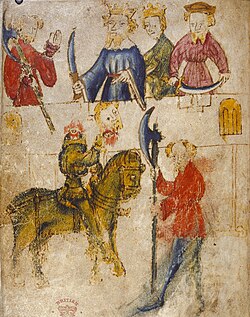
Fictional games are games which were specifically created for works of fiction, or which otherwise originated in fiction.
Contents
- Billiards games
- Board games
- Card games
- MMORPGS/Role-playing games
- Sports
- Athletic sports
- Combat sports
- Team ball sports
- Non-team ball sports
- Other sports
- Video games
- Other games
- See also
- References
In his foundational academic work on this topic, Stefano Gualeni defines fictional games as "playful activities and ludic artefacts conceptualized as part of fictional worlds", [3] [4] and emphasizes that - as elements of a work of fiction - their purpose is to trigger the imagination of the audience and cannot actually be (or at least were not originally meant to be) played. [3] [4]
Many fictional games have, however, been adapted into real games by fans or ludophiles by creating pieces and rules to fit the descriptions given in the source work. For example, unofficial versions of Fizzbin can be found in reality, and Mornington Crescent is widely played in online forums.
Fictional games tend not to be presented in a detailed and formally complete manner by their authors. Within the respective works of fiction, they are typically defined just clearly enough to achieve their intended narrative functions. [3] [4]